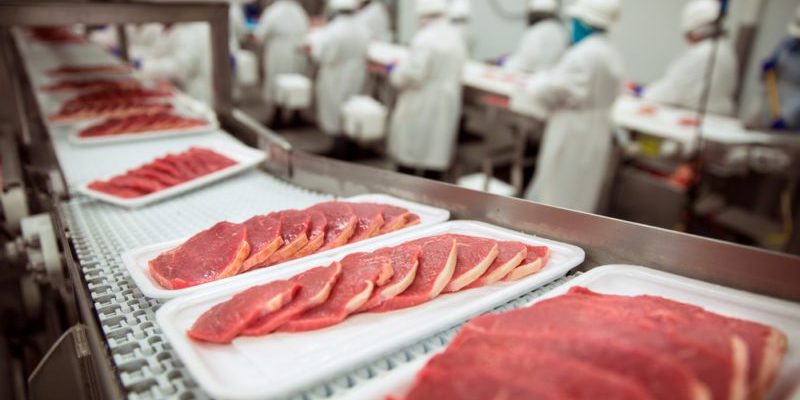Navigating the Maze: Regulatory Compliance in Food Manufacturing
If you own a food manufacturing business, any thoughts of a shutdown after a recall or failing a regulatory audit are frightening, to be sure. Regulatory compliance has always been an obstacle for food producers, but the concern is growing in the industry over strict regulator demands. Many product plants are concerned that their facilities are ill-equipped to pivot and adapt to a rapidly shifting food and beverage sector.
This blog examines why food and beverage compliance has become so challenging in recent years, the latest certification requirements, and how businesses should grapple with a more astringent regulatory environment. We look at the role of industrial automation solutions, in particular how enterprise resource planning (ERP) solutions for food manufacturers can relieve most of the headaches associated with regulatory compliance.
Key certifications for the food and beverage industry
The Food Safety Modernization Act of 2011 (FSMA) changed how the United States regulatory bodies hold the food and beverage industry accountable, asking businesses to embrace a deluge of new standards and practices. While the FSMA did not create the certification process, it set the stage for a series of industry designations that companies must attain to remain federally compliant in specific areas.
Here are a few most common certifications in the food production sector:
- Good Manufacturing Practices Certification (GMP)
- Foundation Food Safety System Certification 22000 (FSSC 22000)
- International Organization of Standardization 22000 (ISO 22000)
- British Retail Consortium (BRC)
- Safe Quality Food (SQF)
- Hazard Analysis and Critical Control Points (HACCP)
As consumer preferences shift toward sustainably produced organic foods (and healthier products in general) expect additional certifications regulating these qualities. A few different certificate types already exist for the health food industry. A large segment of consumers favors non-GMO products, for instance. The most common certifications for GMO-free foods are from the National Sanitation Foundation (NSF), A Greener World (AGW), and the USDA.
The market for plant-based foods is growing and often profitable. If you plan on delving into vegan and gluten-free items, be aware that you need several certifications from multiple agencies before marketing and distributing these products. Vegan Action, BeVeg, and Natural Food Certifiers badges are the most esteemed certification among informed consumers. The most sought-after certifications for gluten-free foods are the BRCGS, NSF, and Gluten-Free Certification Organization (GFCO).
Demand for organically certified products is on the rise as well. Organically produced foods constitute any item that was harvested and processed in the absence of chemical inputs and genetically modified seeds. Concerning livestock, animal feeding and care must adhere to several specified methods before it can be certified as organic. The USDA is primarily responsible for inspecting and certifying most organic foods you find in stores.
Organically certified goods must maintain strict physical separation throughout manufacturing and distribution. You will similarly encounter dozens of additional niche categories for lactose-free and allergen-specific foods. It depends on how long you’ve been operating, but it is likely that your business possesses many of these certifications already. Most food producers report that they would find it difficult to complete without an HACCP certification, for instance.
How food and beverage ERP solutions ensure regulatory compliance?
In the light of these new various certification programs, regulatory compliance in the food and beverage industry is undoubtedly becoming more difficult to achieve. Food manufacturers quickly realize that an outdated approach to food production can land their companies in regulatory hot water fast.
Many food producers, for instance, still rely on manual recording procedures and multiple data systems to control critical aspects of their business. When organizations depend on older and error-prone methods, the result is a lack of consistency that can cost you a hard-earned certification.
The new regulatory environment has prompted companies of all sizes to turn to enterprise resource planning solutions. ERP for the food and beverage industry helps companies gain control over their information flow, leave the multiple systems behind, and integrate access to their valuable data across a single platform. Effective data integration through an ERP solution is vital to operational consistency, mitigating risk, and accurate product labeling.
Your business department should continuously research new certifications, regulatory changes, and the additional certificates required to expand your footprint. While food and beverage certifications lend credibility to your products, most are required before you can make specific marketing claims about your goods.
Maintaining your food certifications requires a proactive commitment from producers that can’t be overstated. Industrial automation solutions and ERP software for the food and beverage industry make complying with the regulations and standards of your certifications easier.
Enterprise resource planning technology from EzSoft can deploy dozens of automated checks and a constant stream of valuable real-time data synchronized to a centralized interface. The deeper insight and control over your operations means you can identify procedural issues before they snowball into significant problems that result in unplanned downtime.
Top industrial automation companies near me
EZSoft is a full-service integrator of process control systems in the Philadelphia region, serving the food and pharmaceutical process industries. Our expert technicians can leverage decades of experience to help your company implement a purpose-built ERP system to give you more control over your manufacturing.
To discover how ERP solutions from EZSoft can benefit your food production business, fill out our online inquiry form or call us now at (484) 568-5040.







